Tools to help you

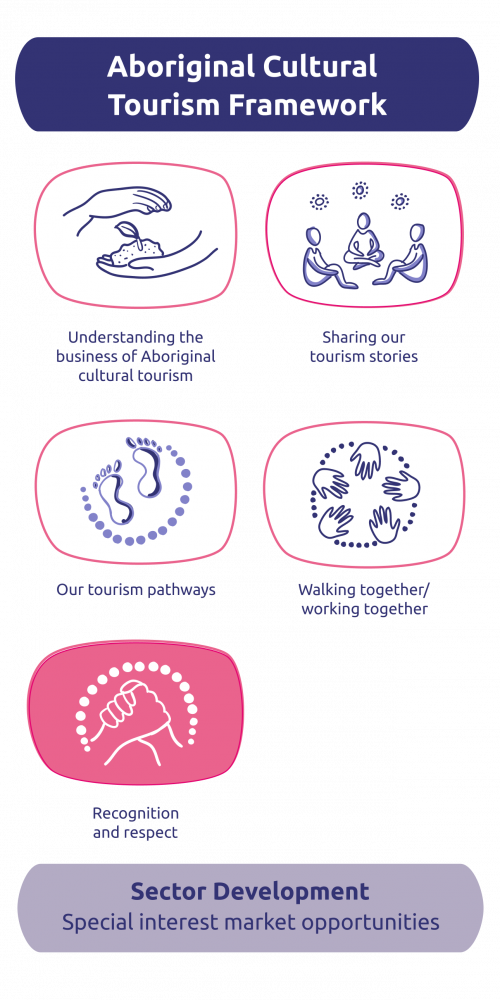
Defining Aboriginal cultural tourism
The Northern Territory Aboriginal Tourism Strategy 2020-2030 defines Aboriginal cultural tourism as: ‘Northern Territory Aboriginal cultural experiences and product that are delivered with integrity and the appropriate cultural authority with respect to Aboriginal intellectual property rights, cultural and traditional practices; and are consistently delivered in a creditable and respectful manner.’
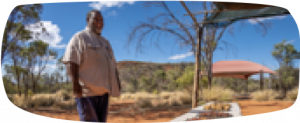
What is an Aboriginal tourism business?
- Northern Territory based wholly owned and controlled by Aboriginal people, or
- Northern Territory based with more than 50% (majority) owned and controlled by Aboriginal people
- Its primary business is providing the visitor economy with related goods and services including accommodation, transport, visitor tours and experiences, events, retail, food and beverage, cultural and art centres.*
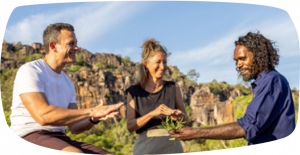
What is the Aboriginal tourism sector?
- An Aboriginal tourism business
- All tourism businesses and their partners who incorporate an Aboriginal cultural tourism experience or product.
When working with non-Aboriginal partners and operators to deliver Aboriginal cultural tourism product and experiences, it is important to establish appropriate cultural protocols and ways of working together. More information on this can be found in the Northern Territory Aboriginal Cultural Tourism Framework’s Walking together/working together booklet and more examples of different types of Aboriginal cultural tourism can be found in the Sharing our tourism stories booklet.
*Australian Bureau of Statistics, Defining Aboriginal and Torres Strait Islander-owned Businesses, 2010
Getting the right approvals
Section 19: Aboriginal Land Rights (Northern Territory) Act 1976 (Cth)
Over 50% of land and around 84% of the Northern Territory coastline is under Aboriginal ownership. Section 19 of the Aboriginal Land Rights Act provides a system for government, businesses, organisations and individual people to apply to the relevant land council for leases over specific areas of Aboriginal land

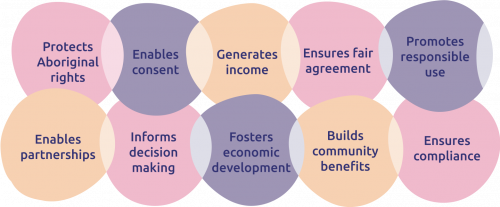
Consent for use of Aboriginal land cannot come directly through the Traditional Aboriginal Owners, as per the Aboriginal Land Rights (Northern Territory) Act 1976 (Cth) Section 19 applications must be made directly to the representative land council.
Section 19 applications take time and can be impacted by cultural obligations and priorities, consultation requirements, expert advice, conflicting views, access and availability and number of applications being processed.
If Traditional Aboriginal Owners do not consent to a Section 19 proposal, it will not be progressed further.
Northern Territory Joint Managed National Parks and Reserves
The Parks and Wildlife Commission of the Northern Territory jointly manages 33 national parks and reserves with Aboriginal Traditional Owners. Kakadu and Uluru-Kata Tjuta National Parks are also jointly managed with the Director of National Parks on behalf of the Commonwealth Government - tour guides to these parks must hold a Knowledge for Tour Guides accreditation. Each jointly managed national park is overseen by a majority Aboriginal Traditional Owner board and operates in accordance with a park plan of management. The board is responsible for making appropriate decisions including for tourism, cultural knowledge sharing, park access and commercial opportunities.
For more information
- Leasing and licensing Aboriginal land - Central Land Council (clc.org.au)
- Section 19 Land Use Agreements | Northern Land Council (nlc.org.au)
- Permits and authorisations for activities in Northern Territory Parks and reserves
- Permits, licences and leases for activities in Commonwealth Parks and Reserves
Recognition pathways
There are different organisations that currently provide recognition of Aboriginal business ownership. These include:
NTIBN is a 100% Aboriginal owned and operated organisation that represents, promotes, supports and advocates for members. A certified member is an Aboriginal business enterprise that is a 51% or more Aboriginal owned and controlled business. In addition to proof of Aboriginality, businesses must also prove majority employment of Aboriginal people, business structure and registration. The NTIBN Board must approve of the business prior to certification. Membership fees apply depending on business size and model. Benefits include networking, business support, logo and badge certificate and Blak Business Directory listing. Non-Aboriginal businesses can become Ally Members, demonstrating their commitment to supporting Aboriginal employment, training, leadership and community benefits.
Discover Aboriginal Experiences is a collective of quality, Aboriginal guided tourism offerings from across Australia. This collective is part of Tourism Australia’s Signature Experiences of Australia program that packages and promotes Australia’s outstanding tourism products. Products must be international market ready and are recommended for inclusion by their representative State or Territory tourism organisation. This is not an accreditation program, however provides global recognition to high quality export ready Aboriginal experiences across Australia. Discover Aboriginal Experiences with:
Supply Nation is Australia’s largest national online directory of Aboriginal and Torres Strait Islander businesses. Membership for Aboriginal businesses is free, enabling businesses to directly list and connect with government and nongovernment buyers. There is a five step verification process which is done online and includes assessing business registration, proof of Aboriginal ownership (at least 51% to be certified or 50% to be registered), with annual audits conducted.
The Respecting Our Culture (ROC) program encourages the tourism industry to operate in ways that respect Aboriginal culture and communities.
Managed by certification body Ecotourism Australia, operators must meet the following criteria:
- Provide products focused on presenting cultural values of an area visited
- Most of the customer’s activity time is spent experiencing cultural areas or learning about local culture
- The product helps customers directly and personally experience local culture without causing damage.
What others are saying
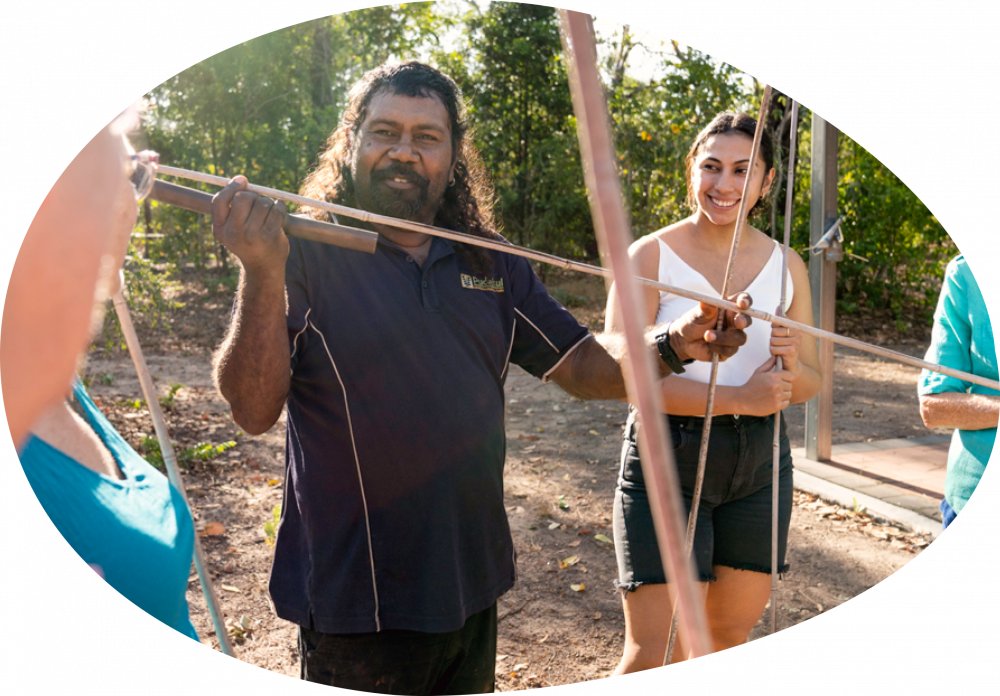
If you want to get into business...even in remote communities... do it! And it is a long road and there are a lot of hurdles that you’re going to have to leap over but it’s something you keep on feeling strong about, sharing culture... You can change people just by doing a tour. It’s not only doing it for yourself, you’re doing it for your family - the bigger picture.
Graham Kenyon
Pudakul Aboriginal Cultural Tours




